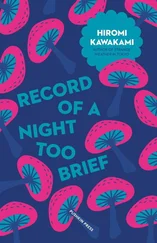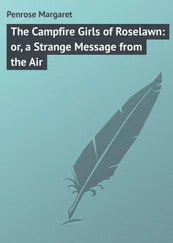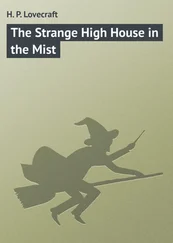“Tsukiko, I didn’t do this in order to teach that fellow a lesson. I stole the earring because I found him annoying and I wanted to. Make no mistake about it.”
Oh, I won’t, I replied warily, and gulped down my saké. We each finished off another bottle, then paid our separate bills, as usual, and left the odenya .
THE MOON SHONE brightly. It was almost full.
Sensei… Sensei, do you ever feel lonely? The question popped out as the two of us walked side by side, both facing forward.
“I felt lonely when I hurt my butt,” Sensei replied, still looking ahead.
Of course, what happened to your butt—er, I mean, your backside?
“As I was putting on my pants, my foot got caught and I fell over. I landed very hard, on my butt.”
I couldn’t stifle my laughter. Sensei laughed a little too.
“I suppose it wasn’t loneliness that I felt. Physical pain inspires the worst kind of helplessness.”
Sensei, do you like mineral water? I moved on to another question.
“This conversation is jumping around, isn’t it? Let’s see, well, I’ve always enjoyed Wilkinson brand soda water.”
Really? Is that so? I replied, still facing forward.
The moon was high in the sky, with a few thin clouds. The first signs of spring were still a ways away, yet spring felt closer at hand than when we had entered the odenya .
What are you going to do with that earring? I asked.
Sensei thought for a moment before answering. “I think I’ll keep it in my bureau. I’ll take it out sometimes for amusement.”
In the bureau where you keep the railway teapots? I asked.
Sensei nodded gravely. “That’s correct. In the bureau where I keep commemorative items.”
Is tonight a night to commemorate?
“It’s been a long time since I stole something.”
So then, Sensei, when did you learn how to steal?
“In a previous life, sort of,” Sensei said, letting out a little chuckle.
Sensei and I strolled along. There was a faint promise of spring in the night air. The moon glimmered in gold.
The Cherry Blossom Party, Part 1
I WAS APPREHENSIVE when Sensei announced, “I received a postcard from Ms. Ishino.”
Ms. Ishino was still the art teacher at our high school. When I was a student, she had probably still been in her mid-thirties. She always used to whisk through the corridors wearing her artist’s smock and with her luxuriantly black and wavy hair pulled to the back. Slender, she seemed to brim with vigor. Equally popular with girls as well as boys, her classroom after school would always be chock-full of the quirky and peculiar students who were in the art club.
Ms. Ishino would be shut up in the art prep room, and when the aroma of coffee drifted out to the classroom, the art students knocked on her door.
“What is it?” Ms. Ishino would answer in her husky voice.
“Please, Ms. Ishino, let us have a coffee klatch,” one of the art students would say through the door. He spoke in a deliberately bewildered tone.
“All right, all right,” Ms. Ishino would say, opening the door and handing over the entire siphon full of coffee to the students. Those allowed to partake in the coffee klatch were the club president and vice president, along with several other seniors. Lowerclassmen had not yet earned the right. Ms. Ishino would emerge from the prep room to drink coffee with them, clasping in both hands an oversized Mashiko-ware mug that she had fired herself in a friend’s kiln. Then she would straighten her shoulders a bit and take a look around at the art club students’ work. She would sit back down in a chair and finish her coffee. She never added cream. Students would bring their own non-dairy creamer or packets of sugar, because Ms. Ishino always took her coffee black.
A classmate of mine who was in the art club had raptly proclaimed, Someday I hope to be like Ms. Ishino… So I had peeked into her classroom a few times out of curiosity. Nobody seemed to care if people who weren’t in the art club hung out there too. The place was warm, reeking of paint thinner and a hint of cigarette smoke.
“She’s so cool, isn’t she?” my friend would say, and I’d mumble and nod, Yeah, well. But the truth was that I hated things like “handmade Mashiko-ware.” I didn’t feel particularly strongly one way or another about Ms. Ishino’s appearance, just her big hand-thrown coffee mug. I didn’t hold anything against Mashiko-ware in and of itself, per se.
I took Ms. Ishino’s art class my first year in high school, but that was it. I have a vague memory of doing charcoal sketches of plaster figures and watercolor still lifes. My grades were below average. While we were students there, Ms. Ishino had married the social studies teacher. She was probably in her mid-fifties now.
“It’s an invitation to the cherry-blossom-viewing party,” Sensei said a few moments later.
I see, I replied. The cherry blossom party?
“It’s an annual event. They do it every year, a few days before school starts in April, on the embankment in front of the school. Tsukiko, how would you like to join me at this year’s cherry blossom party?” Sensei asked.
I see, I repeated myself. Cherry blossom parties are nice. But there was nothing nice about the tone of my voice. Sensei, however, paid no attention as he stared fixedly at the postcard.
“Ms. Ishino has always had such fine penmanship,” he said. Then Sensei carefully unzipped his briefcase and slid the postcard into one of the compartments. I watched absentmindedly as he zipped it back shut again.
“Don’t forget, it’s on April 7,” Sensei reminded me as he waved from the bus stop.
I’ll try to remember, I replied, as if I were a student again. It was somewhat of a careless phrase, insecure and childish.
NO MATTER HOW many times I heard it, I could not get used to the name Mr. Matsumoto. That was, of course, what everyone called Sensei. His full name was Mr. Harutsuna Matsumoto. Apparently the other teachers called each other “Mr.” or “Ms.” Mr. Matsumoto. Mr. Kyogoku. Ms. Honda. Mr. Nishikawahara. Ms. Ishino. And so on.
Even though Sensei had invited me, I had no interest in going to the cherry blossom party. I figured I would get out of it by making some excuse about being very busy at work or something. But the day of the party, Sensei showed up outside my apartment to pick me up. It was very unusual behavior for Sensei. Unusual, but nevertheless, there he was—standing tall, wearing a spring jacket, and carrying his briefcase.
“Tsukiko, did you bring something to sit on?” He stood outside my building asking a series of questions. He made no move to come up to my place on the second floor. When I saw Sensei’s smiling face, as he waited for me with complete assurance, I simply couldn’t bring myself to make excuses. Resigned, I hastily stuffed a stiff plastic sheet into a bag, threw on whatever clothes I found randomly scattered about, and slipped into the same sneakers I had worn on the mushroom hunt with Satoru and Toru (and had yet to clean off) before bounding down the stairs.
The scene on the school’s embankment was already in full swing. Current teachers along with retired teachers, as well as a number of former students, had laid mats and sheets over the entire bank, lined up bottles of saké and beer, and set out food they had brought, and everyone was laughing merrily. It was difficult to tell where the center of the party was. After Sensei and I put down our sheet and greeted the people around us, still more people continued to arrive, each of them laying out mats they had brought. The cherry blossom party guests seemed to steadily spread out, like a plant’s leaves unfurling as its bud blooms.
The space between Sensei and me was quickly filled by an elderly gentleman, Mr. Settsu, and then the space between Mr. Settsu and me was occupied by a young teacher, Ms. Makita. She was joined by other former students—two women named Shibasaki and Kayama and a man named Onda—but I soon lost track of who was whom.
Читать дальше
![Хироми Каваками Strange Weather in Tokyo [= The Briefcase] обложка книги](/books/29150/hiromi-kavakami-strange-weather-in-tokyo-the-br-cover.webp)










